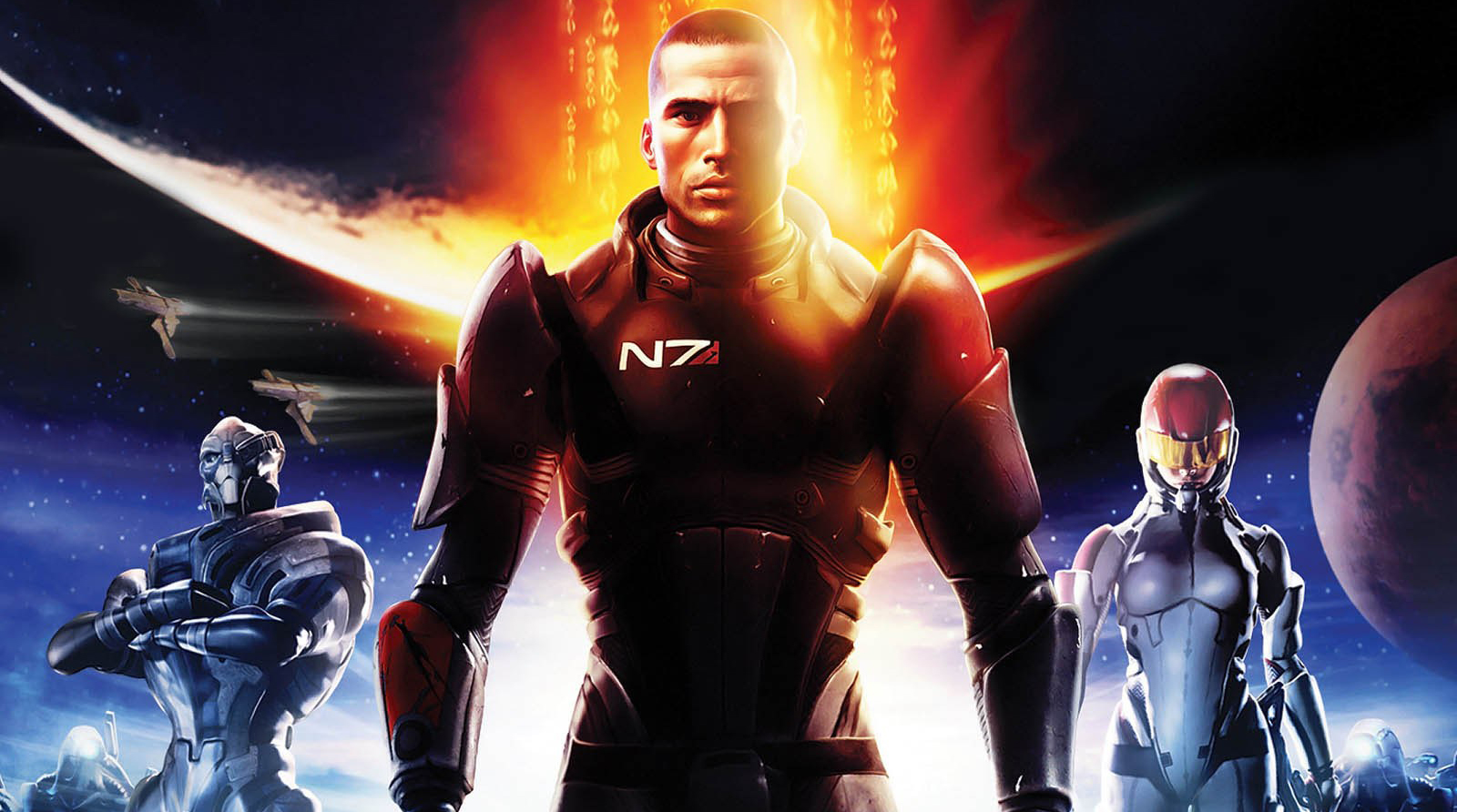Mass Effect

When you consider the entirety of space, all you really can fathom is that empty horizon blanketed roughly with stars spanning millions of light years away. The deeper you go, the more alone you feel, and sooner or later you become engulfed into space’s overall blackness.
That is not the case, however, when it comes to the massive Milky Way galaxy and its unchartered—or chartered—planets and star systems. The writers of the Bioware game clearly had this in mind when creating the world that would encompass a soon-to-be trilogy that is the Mass Effect series.
I actually don’t want to comment on the game itself as a normal game reviewer would. Sure, I could probably go on and on about the decent graphics (made ever better in the second game), the fighting style, and the overall interface of the game itself, but I hardly qualify. Needless to say, I’ve been used to the kind of game Mass Effect would be after Bioware’s own Dragon Age series, so I’ll just skip that and take a look at the plot, worldbuilding, character and dialogue writing happening behind the scenes.
Mass Effect revolves around the character of [Insert-First-Name] Shepard. The gamer has numerous options regarding Shepard’s past, but it leads to the same result: Shepard becomes the commander of a highly-militarized and technologically-advanced ship named the SSV Normandy. Shepard’s role becomes complicated later on in the game, as his—or her (again, depending on gamer preference)—mission lands him working with aliens aboard his largely-human Alliance spaceship. Not only does Shepard become the symbol of Alliance strength, he also becomes embroiled in a battle against a villain that could threaten the entire galaxy.
The human race in Mass Effect has just recently begun its exploration of space. With their discovery of mass effect relays scattered across the Attican Traverse (an area in space controlled by the Council—led by three of the major alien races), humanity’s expansion quickly gave them ambassadorial privileges within Citadel space, ruled by the Council. Like the frustrating politics seen on Earth, delving into alien politics becomes murky at best. Think foreign policies except on a much grander scale—one that expands to an entire galaxy as opposed to an entire planet.
This is where the aliens come to play. The first Mass Effect introduces the player to a wide array of creatures that travel in Citadel-controlled space. The main three—the ones with seats on the Council—are: the asari, the utterly blue, all-women race with a dangerous amount of biotic/psychic abilities; the turians, the military and security experts of Citadel space; and the salarians, the short-lived scientific geniuses. Of course, the writers have expanded to include many more races in the game, but that is merely one of the fun bits of delving into the Mass Effect world. Each race has a particular religion, code of ethics, culture, and skill. Some aren’t even fully “organic” (some are believed to be purely virtual or artificial intelligence). Personally, some of my favorite races (that don’t include turians and salarians) are the elcor, volus, and krogans. But a discussion on that is another article entirely.
The world is huge in the game. It amazes me how many writers became involved in the creation of a galaxy system. The first Mass Effect alone has numerous star systems with planet names and attributes. There are even a number of planets that the gamer can land and explore (I was particularly fond of the ones whose stars were blue or red giants). While Mass Effect 2 gets rid of this exploration feature, there is still the ability to explore star systems and gather minerals.
If the plot, the races, and the world aren’t enough, there’s definitely more to Mass Effect that could pique interest. For one, the hero’s main companions are all interesting at best, and frustrating at times. The gamer is given a decision with dialogue, and many characters react to the optional dialogue. For instance, if Shepard wanted to punch a crazy fanatic, then the fanatic would react in the negative. These options lead to many different outcomes, which brings the replayable factor of Mass Effect to a higher level. I’m seriously on my second play-through of the first game, this time attempting a male, righteous hero as opposed to my female, merciless heroine. And already I can see the huge differences in outcomes.
So yes. Space is not empty. Clearly not in Mass Effect. There is so much to be done in this game, and I’ve really only touched the most obvious aspects as to why I’ve been attracted to the game in the first place. I loved the thought of space travel, loved the idea of the different living systems located outside of Earth, and absolutely loved the not-so-limited movement and dialogue options I have been given during the game. Clearly this game was made for me!






